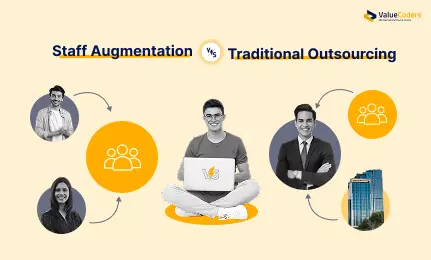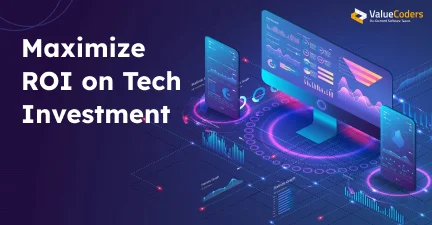The hospitality industry is a multifaceted sector where technology plays a crucial role. According to a hospitalityinsights.ehl.edu report, the hospitality industry will grow to $5,816.66 billion by 2027, with a CAGR of 5.5%.
Technology in hospitality industry today is transforming the way people find where to go and communicate with their beloved restaurants and hotels.
Today, customers demand hassle-free experiences from reservation to checkout. However, manual procedures and legacy systems only resulted in delays, mistakes, and inefficiencies. On top of that, managing large volumes of bookings, guest data, and staff operations is no easy job.
So, what’s the solution?
Let’s discuss about how the appropriate technologies can benefit hospitality companies to grow revenue, improve efficiency, and provide improved guest experiences.
How Hospitality Businesses Use Technology for Multiple Benefits?
From restaurants and hotels to leisure and travel, companies are introducing new technologies to provide a seamless experience.
New hospitality industry technology is revolutionizing the hospitality industry in various ways. Here’s how companies are gaining advantages from these technologies:
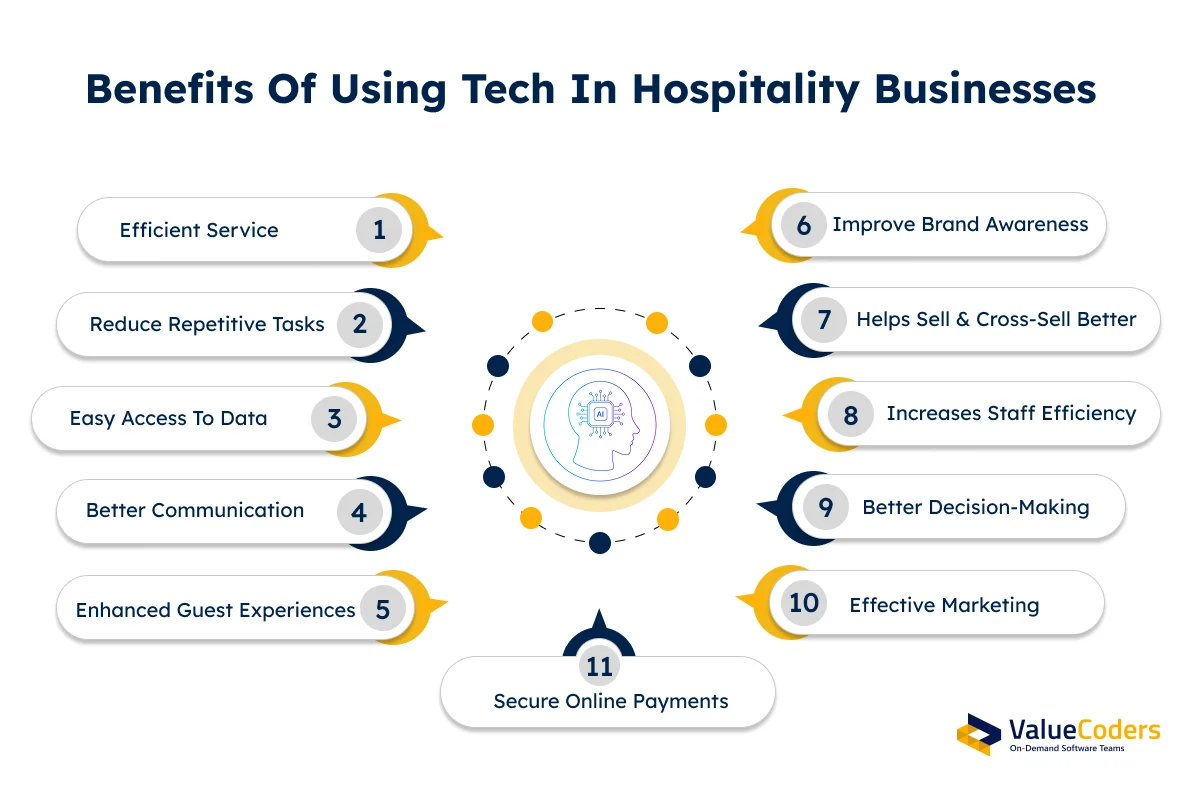
1. Efficient Service
Hotels and restaurants now use automation to speed up service. Contactless check-in technology allows guests to avoid front desk queues, and mobile ordering platforms minimize restaurant waiting times.
Intelligent room controls regulate lighting and temperature automatically according to guests’ preferences, providing a seamless experience.
These systems help staff handle more guests with fewer delays.
- Quick and hassle-free experiences.
- Minimized wait times.
- Higher satisfaction scores and increased spending per guest.
2. Reduce Repetitive Tasks
Staff no longer waste time on manual data entry, inventory counts, or basic customer questions. Automated systems handle room assignments, booking confirmations, and routine inquiries.
At restaurants, digital inventory systems track supply levels and can even place orders automatically when stocks run low. This frees up employees to focus on meaningful guest interactions rather than paperwork.
- Automation eliminates time-consuming manual processes.
- AI-powered systems for guest registration, housekeeping requests, and food ordering.
- Automated emails and messaging systems handle booking confirmations and follow-ups.
3. Easy Access to Data
Cloud-based systems provide immediate access to vital information for managers anywhere. With their tablets or smartphones, they can view occupancy levels, revenue levels, and guest commentaries in real-time.
This mobility enables decision-makers to react promptly to issues or opportunities, even when not on the property.
- Guest preferences for personalized services.
- Track customer history, preferences, and feedback for better engagement.
- Make informed pricing and inventory decisions
4. Better Communication
Digital platforms have improved communication between departments and guests. Team messaging apps allow front desk associates to immediately inform housekeeping about early check-ins or special requests.
Advanced guest messaging systems allow guests to pose questions hassle-free. These systems also provide advanced chatting services, using which guests receive responses without answering the phone.
- Mobile apps allow guests to request services without calling reception.
- AI chatbot development services for hospitality handle customer inquiries 24/7.
- Smart messaging systems improve coordination between hotel staff.
Optimize staff efficiency, automate routine tasks, and reduce overhead with our intelligent hospitality solutions.
5. Enhanced Guest Experiences

Technology in hospitality industry provides better guest experiences. Using tech, hotels monitor preferences such as room temperature, pillow, and minibar choices to tailor future stays for their guests.
Among these hotels, a few properties utilize location-based mobile apps to promote timely deals.
Smart TVs display personalized welcome messages and curated entertainment options. Mobile keys eliminate plastic keycards, letting guests go straight to their rooms after a long journey.
- Contactless check-ins, mobile room keys, and digital menus enhance convenience.
- Hotels use facial recognition for faster and more secure check-ins.
- Smart technology in rooms offers customized comfort settings.
6. Improve Brand Awareness
Social media management tools such as Hootsuite, Buffer, Socialbee, etc. help hospitality businesses maintain a consistent online presence. They post schedules, track mentions, and reply to reviews on platforms.
User-generated content campaigns invite visitors to post their experiences on the web, widening the reach of the brand. Virtual tours, through AR/VR technology, enable potential visitors to experience an immersive preview prior to booking the hotel.
- Social media sites and online marketing raise brand awareness.
- Online reviews and ratings impact booking decisions.
- Businesses use targeted ads to attract potential customers.
7. Boost Selling & Cross-Selling
Smart systems analyze guest data to offer relevant upgrades and add-ons. A business traveler might receive an offer for early check-in and airport transfer, while a family could see suggestions for the kids’ club or dining packages.
Timing matters too – these systems can send offers when guests are most likely to accept them, such as spa promotions in the late afternoon or breakfast packages the night before.
- Hotels and restaurants use personalized promotions based on guest preferences.
- AI tools recommend room upgrades, meal plans, or activity packages.
- Customer data allows businesses to tailor offers for repeat guests.
8. Increases Staff Efficiency
Mobile devices let staff complete tasks anywhere on the property. Housekeepers can update room status instantly, while maintenance teams receive and close out repair tickets without returning to an office.
Task management systems prioritize work based on guest impact and business needs. This ensures critical issues never fall through the cracks during busy periods.
- Automated workforce management tools optimize staff schedules.
- Digital training programs improve staff skills and service quality.
- Hospitality CRM software helps reduce workload and enhance productivity.
9. Better Decision-Making
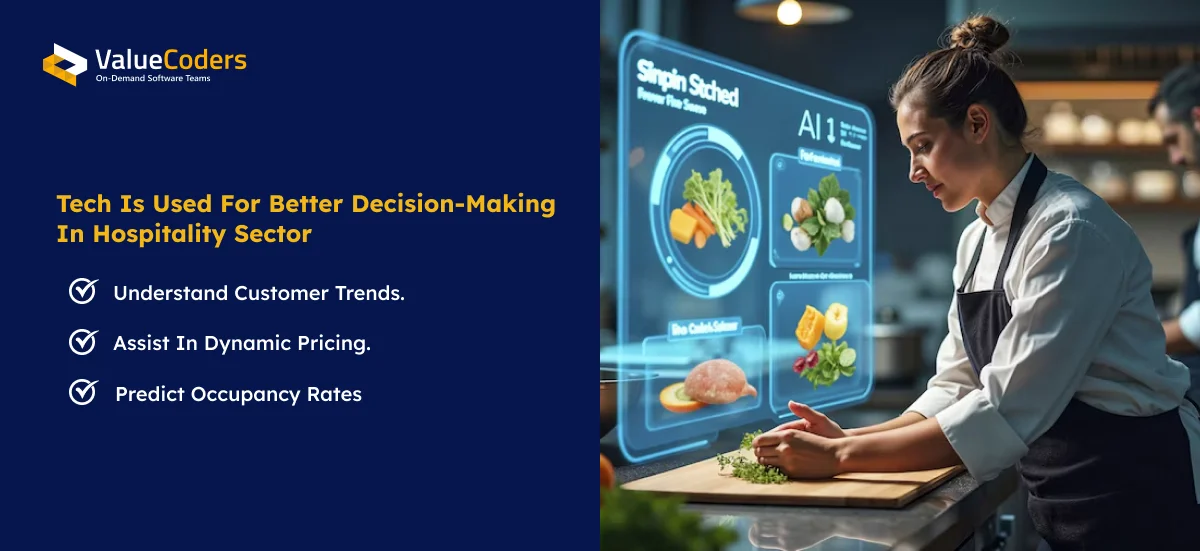
Data analysis software converts information into insight. Revenue management systems change room rates in response to demand trends, competitor pricing, and even weather predictions.
Heat maps indicate where property is getting the most traffic, and managers use this information to better place staff and promotional fixtures. Sentiment analysis tools scan reviews to identify specific aspects of service that need attention.
- Data analytics helps businesses understand customer trends.
- Revenue management systems assist in dynamic pricing.
- AI-driven forecasts predict occupancy rates and demand patterns.
10. Effective Marketing
Targeted marketing campaigns reach the right audience with minimal waste. Email systems segment customers based on past behavior, sending different messages to business travelers versus leisure guests.
Location-based marketing sends offers to potential guests when they’re in the area. Loyalty programs track and reward repeat business, encouraging return visits and direct bookings.
- Hotels use AI to personalize promotions based on customer behavior.
- Social media campaigns drive direct bookings and engagement.
- Email marketing automation enhances guest retention.
11. Secure Online Payments
Digital payment systems protect both guests and businesses. Tokenization technology stores payment information securely, eliminating the need to re-enter card details for each transaction.
Mobile wallets simplify the checkout process, while digital receipts reduce paper waste. Fraud detection algorithms flag suspicious transactions before they are processed.
- Contactless payments reduce transaction time and improve security.
- Digital wallets and mobile payment apps offer seamless transactions.
- Encrypted payment gateways protect customer data.
Also Read – Digital Transformation Essentials for Modern Businesses
Top Challenges of Hospitality Digital Transformation
While technology in hospitality industry offers many benefits, businesses face several challenges in digital adoption.
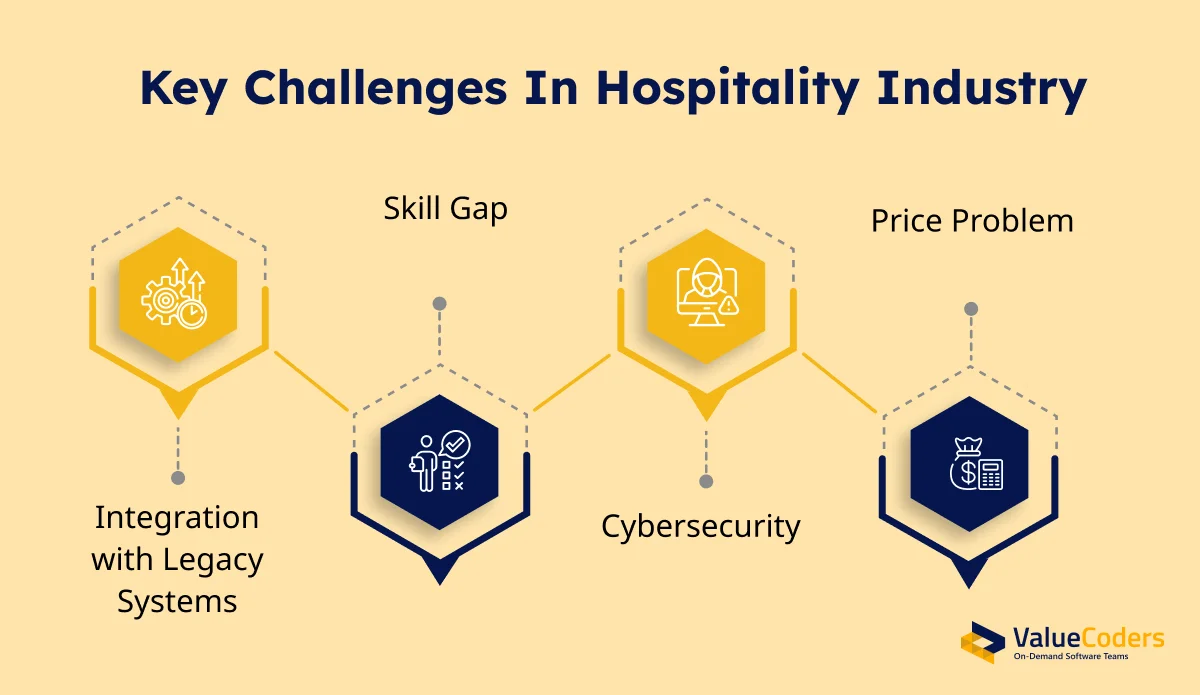
Integration with Legacy Systems
Many hospitality businesses struggle to connect new tech with older systems. Property management systems from the early 2000s may not easily share data with modern mobile apps or IoT devices.
This often forces staff to enter the same information multiple times across different platforms, creating inefficiency and increasing error risk. Custom integration solutions can bridge these gaps but add to project costs and timelines.
Skill Gap
Finding and retaining tech-savvy hospitality workers remains difficult. Front-line staff may resist new systems due to unfamiliarity or fear of being replaced by automation.
Training must balance technical skills with the human touch that defines hospitality. Successful businesses develop comprehensive onboarding programs and provide ongoing support as systems evolve.
Cybersecurity
Hotels and restaurants store valuable data, from payment details to personal information. This makes them attractive targets for hackers and data thieves.
Each new connected device potentially increases vulnerability. Meeting rooms, smart TVs, and digital locks must all be secured against unauthorized access, requiring constant vigilance and regular security updates.
Price Problem
Small and mid-sized hospitality businesses often struggle with technology costs. Enterprise-grade systems may be financially out of reach, while consumer-grade alternatives lack the necessary features.
The subscription model favored by many software providers adds ongoing expenses to tight operational budgets. Businesses must carefully calculate the return on investment before committing to the implementation of the new tech in hospitality industry.
Protect your business from chargebacks and fraud with our AI-powered security solutions for hospitality business.
Essential Technologies Every Hospitality Business Should Know
Modern technology in hospitality industry helps in enhancing guest experiences and streamline operations. The following technologies are transforming how hotels, restaurants, and resorts work.
Let’s checkout all involved technologies in this industry:
1. Travel and Tourism Industry
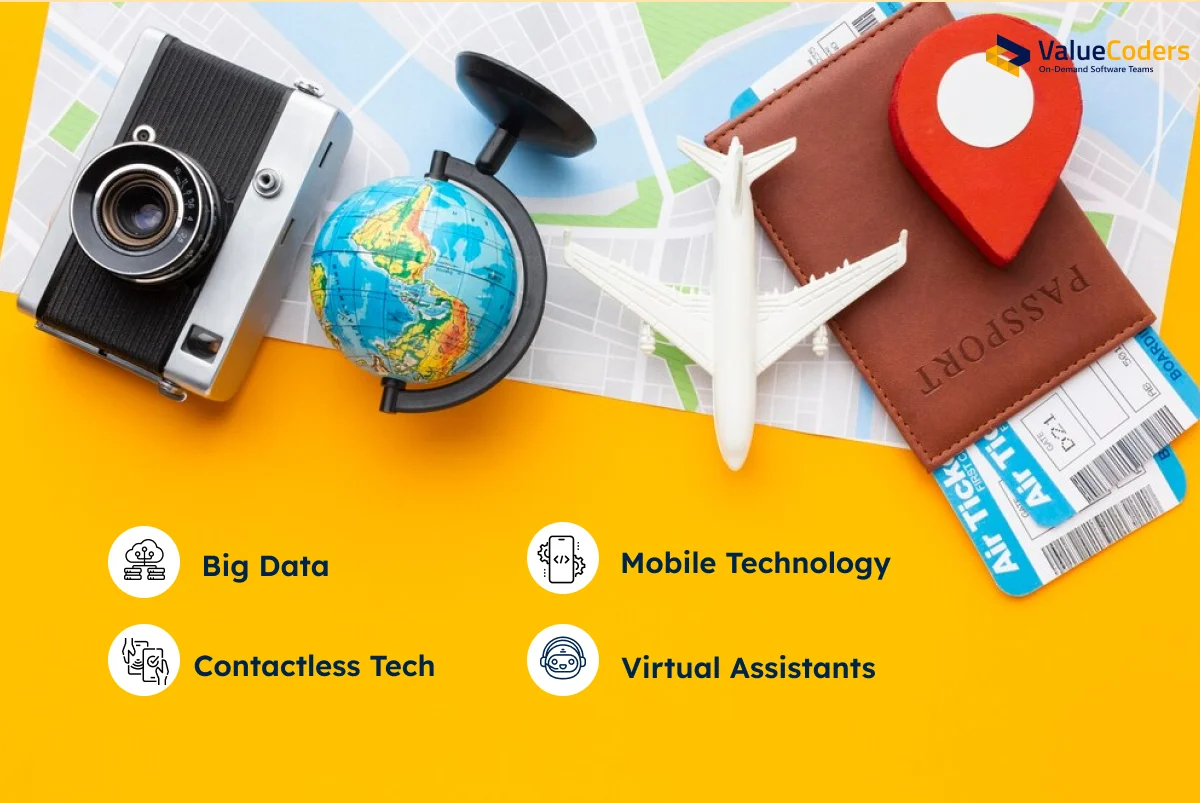
The travel sector has embraced digital tools that smooth the journey from booking to destination. Tour operators, travel agencies, and transportation companies now use smart systems to cut wait times and create hassle-free experiences for travelers.
- Predicts travel trends based on search patterns and booking history
- Helps airlines and tour operators adjust capacity to match demand
- Identifies emerging destinations before they become mainstream
- Tracks sentiment about specific locations across social media platforms
Mobile Technology
- Digital boarding passes reduce paper waste and check-in time
- In-app navigation helps tourists find attractions in unfamiliar cities
- Translation features overcome language barriers
- Mobile payments eliminate the need to carry local currency
- Mobile app development services enhance user experience
Contactless Tech
- NFC-enabled room access bypasses traditional check-in procedures
- Touchless elevator controls reduce surface contamination
- QR code menus replace physical copies in restaurants
- Contactless payments speed up transactions while reducing physical contact
Virtual Assistants
- Answer common questions about hotel services and local attractions
- Process routine requests like wake-up calls and room service orders
- Provide multilingual support without adding staff
- Collect guest preferences for future stays
2. Food and Beverages
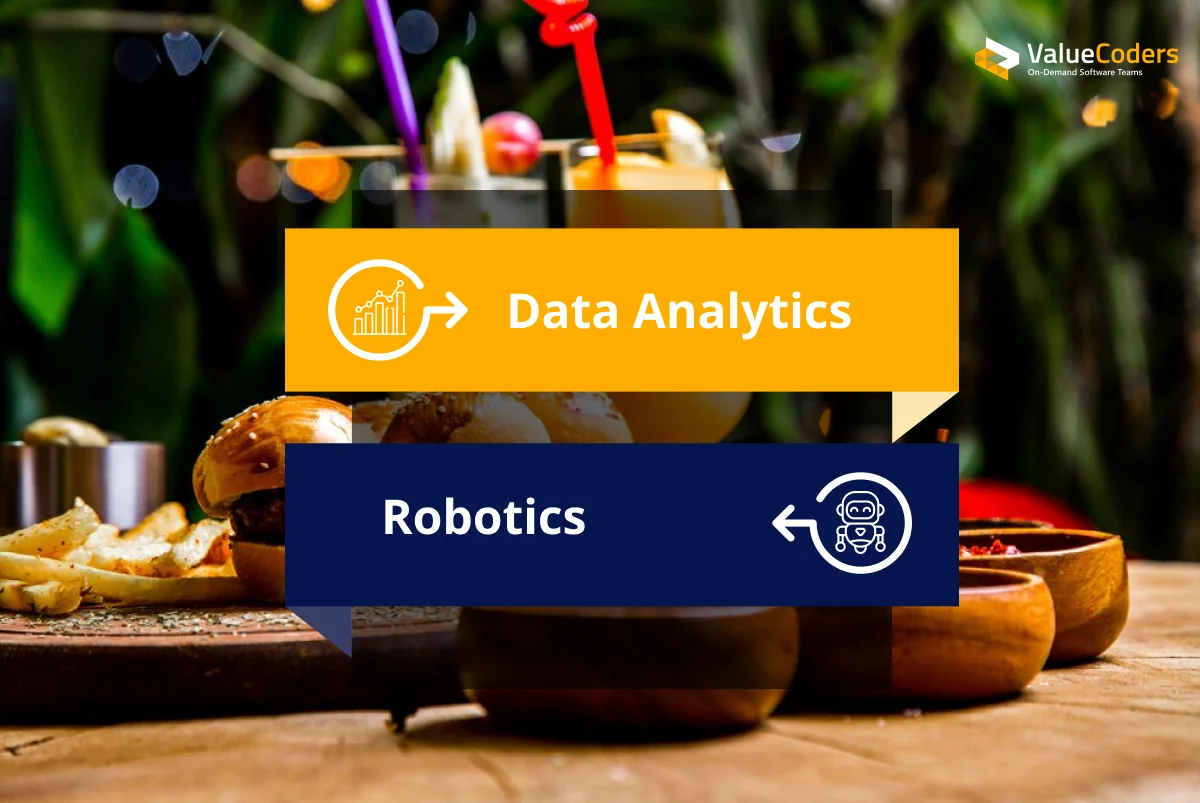
Restaurants and food service businesses face unique challenges that new tech directly addresses. From kitchen management to tableside ordering, these innovations help food establishments serve more guests while maintaining quality and controlling costs.
- Predicts busy periods to optimize staffing levels
- Identifies most profitable menu items and suggests pricing strategies
- Tracks inventory usage patterns to reduce waste
- Analyzes customer feedback to improve dishes and service
Robotics
- Automated food preparation ensures consistent quality
- Delivery robots transport meals from the kitchen to the table
- Robotic bartenders mix precise cocktails during peak hours
- Self-cleaning systems reduce kitchen maintenance time
Also Read – Leveraging AI For Dynamic Pricing In The Hospitality Sector
3. Lodging Sector
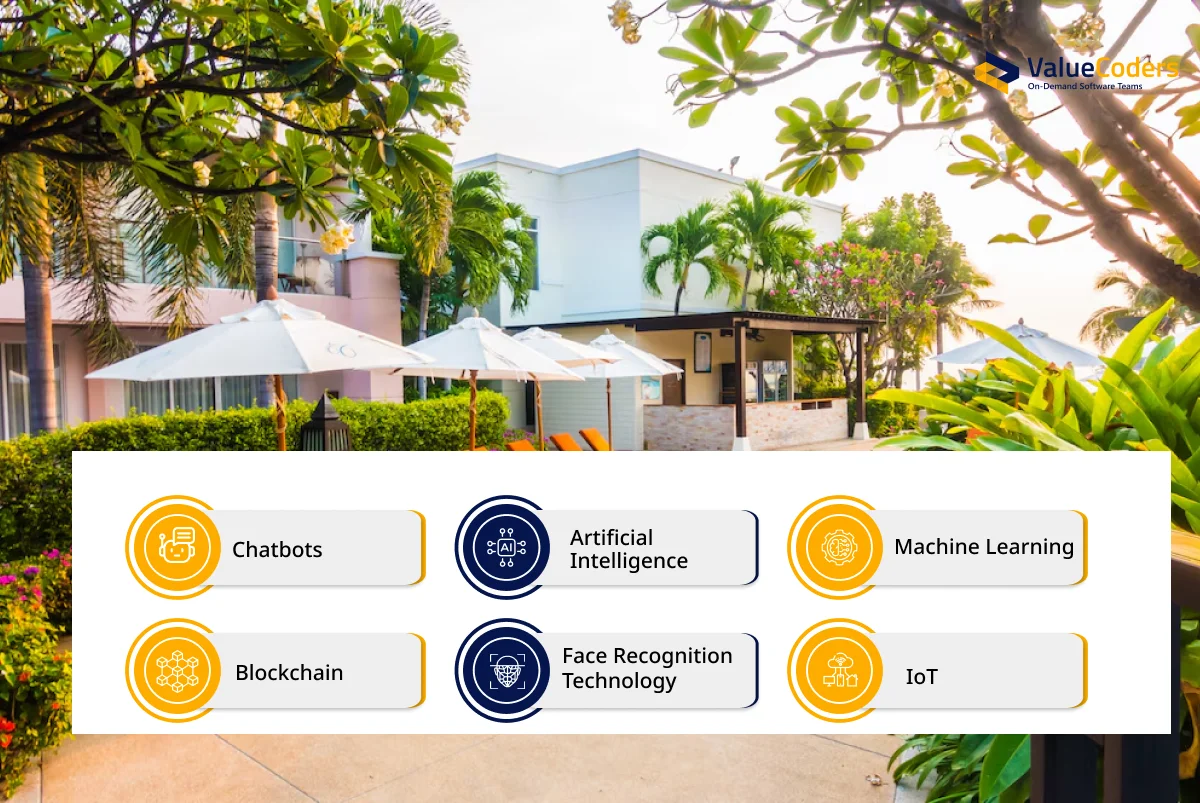
Hotels and accommodation providers lead the way in the adoption of guest-facing technology. Properties of all sizes now implement systems that enhance stays while gathering valuable data to refine services and increase revenue opportunities.
- Handle booking inquiries 24/7 without staffing costs
- Provide instant responses to common questions
- Escalate complex issues to human staff when needed
- Gather information before guest arrival to personalize stays
- Predicts guest preferences based on booking patterns and past stays
- Suggests room assignments based on noise sensitivity and other factors
- Creates personalized itineraries based on guest interests
- Adjusts staffing levels based on predicted demand
- Improves prediction accuracy over time through continuous data analysis
- Identifies maintenance needs before equipment fails
- Spots unusual spending patterns that might indicate fraud
- Refines pricing strategies based on booking conversions
- Secures guest identity information
- Creates tamper-proof digital records of transactions
- Enables secure direct booking without intermediaries
- Facilitates loyalty program point exchanges between partner businesses
Face Recognition Technology
- Speeds up check-in for returning guests
- Enhances security in access-controlled areas
- Helps staff greet guests by name without awkward introductions
- Tracks crowd flow through public spaces for better management
- Smart room features to adjust to guest preferences automatically
- Connected luggage tracking reduces lost items
- Occupancy sensors optimize energy usage in unused spaces
- Preventive maintenance alerts based on equipment performance metrics
Increased Internet Bandwidth
- Supports multiple device connections per guest
- Enables high-definition video streaming and conferencing
- Provides reliable connectivity throughout the property
- Supports cloud-based property management systems
Reduce reliance on OTAs by using our advanced strategies to attract and convert more direct customers.
4. Recreation Industry
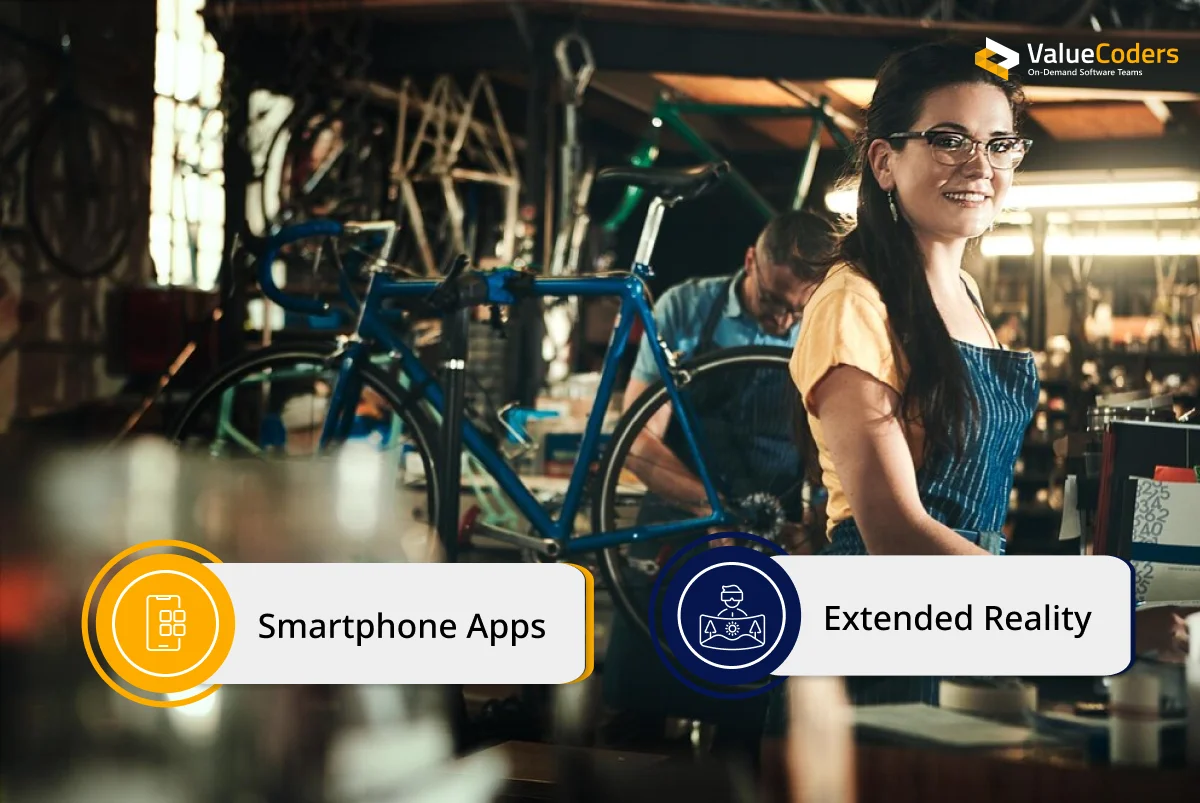
Theme parks, museums, and entertainment venues use technology in hospitality industry to manage crowds and enhance visitor experiences. These attractions blend physical environments with digital elements to create memorable moments while improving operational flow.
Smartphone Apps
- Digital tickets eliminate paper and reduce entry lines
- In-venue navigation guides visitors to attractions and facilities
- Push notifications alert guests to show times and special events
- Food ordering eliminates waiting in concession lines
Extended Reality
- Virtual previews of attractions before visiting
- Augmented reality enhances museum exhibits with additional information
- Interactive gaming experiences blend physical spaces with digital elements
- Virtual reality options for guests with mobility limitations
Also Read – Transforming Mobile App Development with the Best Android Application Service Provider
How ValueCoders Can Help You?
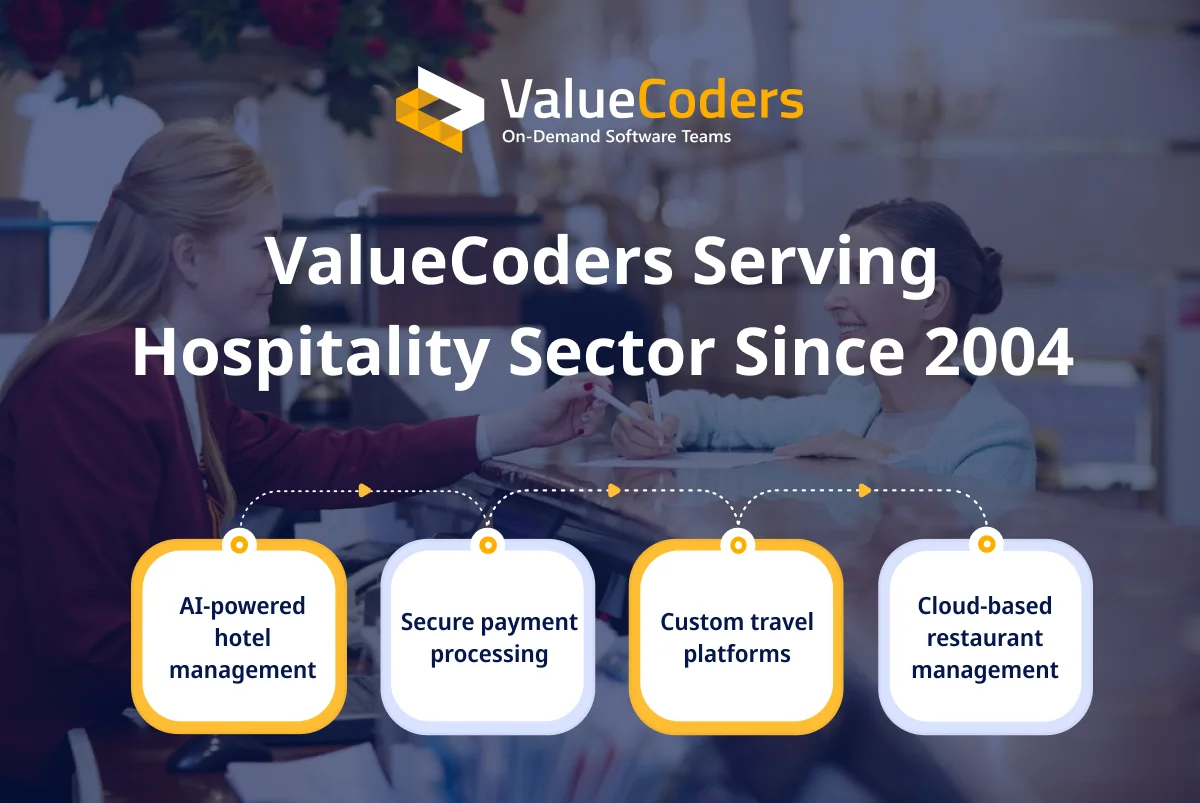
ValueCoders provides advanced software development services for the hospitality industry. Their expertise includes:
- Custom travel and tourism platforms: Mobile-friendly booking systems and itinerary planners
- AI-powered hotel management systems: Automating check-ins, customer support, and pricing
- Secure payment processing solutions: Ensuring hassle-free transactions using AI solutions for hospitality
- Cloud-based restaurant management systems: Inventory tracking and automated order processing
Whether it’s a hotel, restaurant, or travel agency, ValueCoders helps businesses integrate the right technology in hospitality industry for improved service and revenue growth.
Utilize our AI-driven pricing models to optimize room rates, maximize bookings, and outperform competitors.
Conclusion
Technology is essential in the hospitality industry as it brings operational efficiency and a good guest experience. Businesses that successfully blend high-tech convenience with high-touch service will achieve great success in the near future.
The right tech investments will improve both customer satisfaction and revenue rate. As technology in hospitality industry continues to evolve, the hospitality sector will witness even more advancements, making guest experiences smoother and more personalized.
Looking to automate your hospitality business and maximize bookings?
Connect with our experts at ValueCoders, which has been a leading digital transformation solutions provider in India since 2004.
We help you improve the guest experience with our hospitality services including room service automation, chatbots, facial recognition for security, voice-activated rooms, custom AI/ML solutions etc, to ensure a seamless experience.



